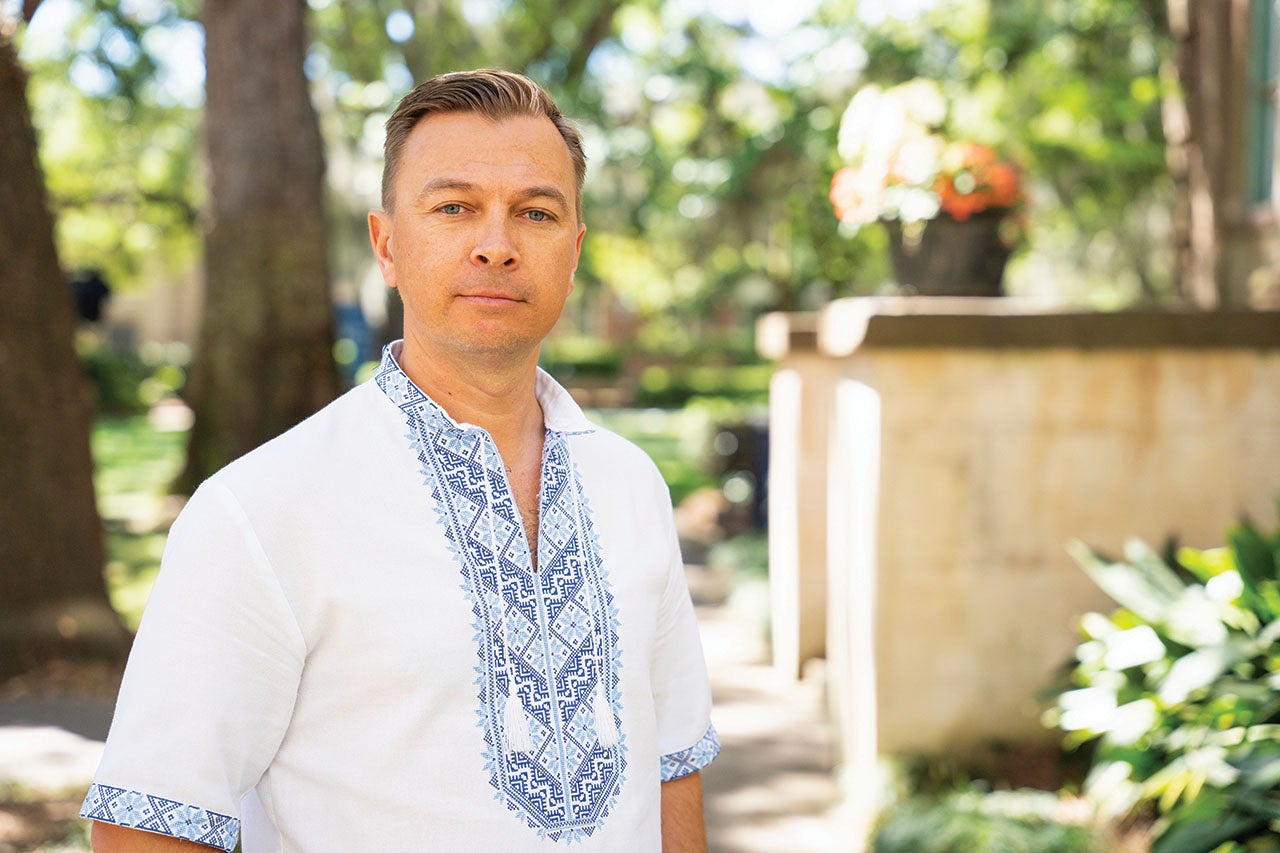By Max Kovalov, Ph.D.
Russia’s most recent military invasion of Ukraine, launched in February, came as a shock to all Ukrainians around the world. Thousands of Ukrainians have been killed and millions displaced. For Ukrainian immigrants residing outside of Ukraine, like myself, the invasion has taken a different toll – mentally and psychologically – because many of us maintain connections to our families, friends and communities in Ukraine, and we feel their pain, anxiety and grief remotely. Ukraine received support from the West, but as the Russian assault reached a grim 100-day mark, international attention slowly shifted away from Ukraine. Meanwhile, Russia continues its war by attacking Ukraine with missiles and tanks and engaging in a looting campaign – by both the Kremlin and the military on the ground.
For Ukraine, Russia’s “special military operation” means the loss of people, territory, wealth, language, culture and sovereignty. Russia is taking not only its land, people, power plants, agricultural equipment and wealth – but also its language and cultural heritage. The Russian government is effectively trying to eradicate the Ukrainian identity. Russia is stealing Ukraine.
The theft began in 2014, when Russia annexed the Ukrainian Autonomous Republic of Crimea. Shortly after, Russia started supporting separatists in the Donbas region, providing them with military training, equipment and economic support. In the annexation and the war in the Donbas region from 2014 to 2020, Ukraine lost $280 billion in output, trade and investment – not to mention 14,000 Ukrainian lives.
Since the full-scale invasion in February, 200,000 children have been abducted and transported to Russia for resettlement. The forceful removal of children from Ukrainian cities occupied by Russia has been nothing less than a state-organized kidnapping campaign – what the Russian media refers to as “saving the children.”
In addition to vandalizing apartments of ordinary citizens and stealing electronics, clothes, shoes and even cosmetics, Russian soldiers have stolen artifacts from museums and churches in more than 250 cultural institutions and centers. In Kherson, the occupiers launched an assault on the Ukrainian education system by imposing Russian curriculum in schools and restricting the use of the Ukrainian language – the destruction of which has been sought by Russian leaders for centuries.
Russia has also destroyed cities, ports, factories and railroads. The Russian blockade of Ukraine’s ports has undermined its capacity to export industrial and agricultural products central to the Ukrainian economy. And, after capturing the nuclear power plant in Zaporizhzhia, Russia planned to disconnect it from Ukraine’s electrical grid or to sell the generated power back to Ukraine. This would deprive Ukraine of 20% of its electric power.
Russia has looted crops that Ukrainians harvested last year in the southeastern regions, too. U.S. officials claimed in early June that Russian ships sent 100,000 tons of stolen Ukrainian wheat to Syria. Not only have Ukrainian farmers dealt with their agricultural equipment being stolen and shipped to distant Russian regions, but they have also dealt with shortages of fuel, fertilizer and manpower critical for spring planting, and their captured fields have been made unsafe because of land mines and unexploded munitions.
In late May, a Russian bomb partially destroyed the Ukrainian seed vault in Kharkiv that housed a unique collection of seeds, some of which no longer exist anywhere else in the world. This assault on Ukrainian heritage is not new to Russia. In 1932–33, 4 million Ukrainians starved to death as a result of the Soviet theft of Ukrainian grain. The Soviets took the grain, including the seed grain, and shipped it for exports, leading to the state-sponsored famine known as Holodomor. Those Ukrainian farmers who didn’t starve to death were exiled. My grandfather, his sister and mother were among the lucky families who survived the Holodomor but were shipped to Siberia.
The memory of Ukrainians who were starved to death in the Holodomor almost a century ago is very much alive today as Russia continues its campaign to steal Ukraine – its land, people, cultural heritage and identity.
Max Kovalov is an instructor of international studies and the Bennett Director of CofC’s Mroz Global Leadership Institute. His research focuses on democratization, politics of memory and populism, and electoral integrity in post-communist states.
Photo by Mike Ledford




